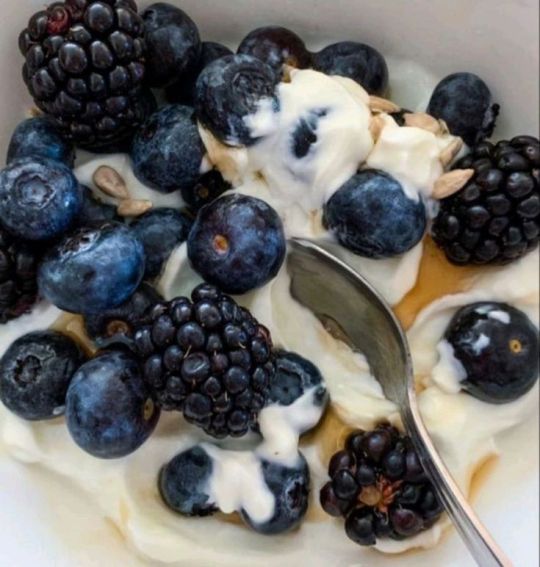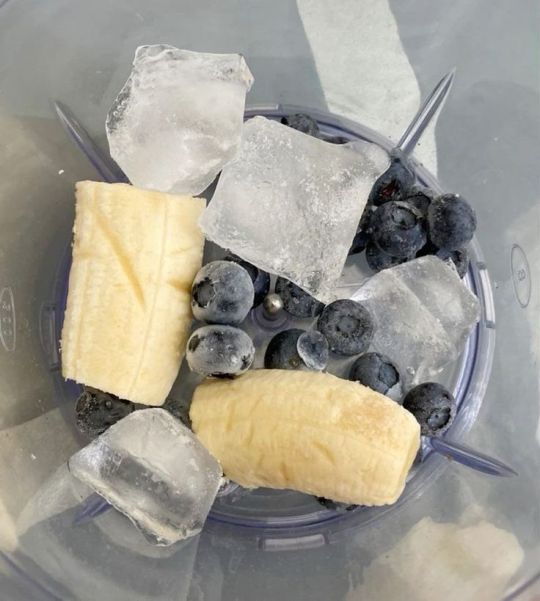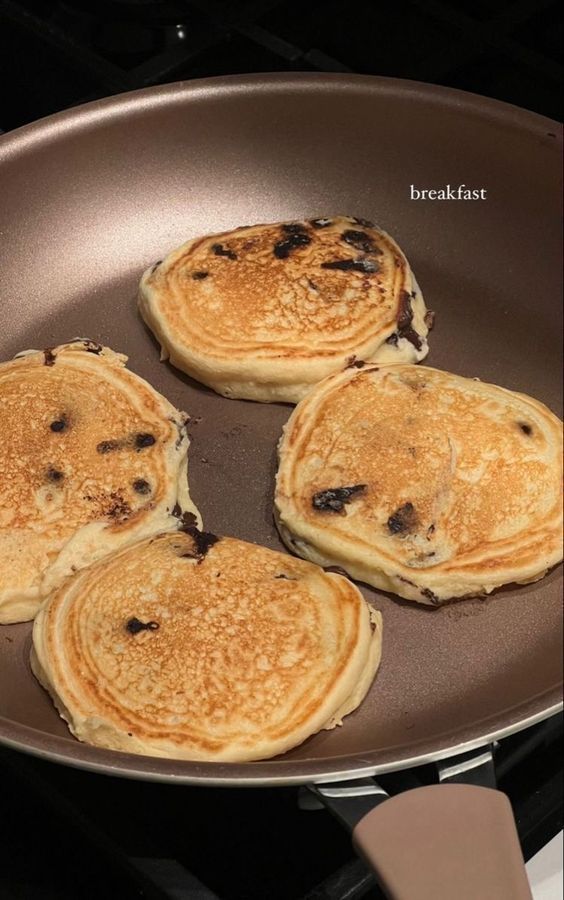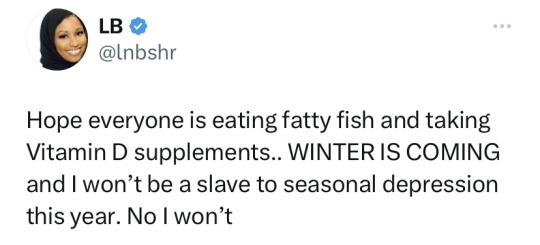#Mental Health and Vitamins
Explore tagged Tumblr posts
Text
I will entrench myself in literature this year no matter what the fuck it takes
#forgot how euphoric it felt to just be seen by a piece of writing#I’m excusing myself for last year bc I was having the busiest semester of my life & then traveled shortly after#so I didn’t make reading a priority#but no more. i have to consume more this year. it makes me feel so good whenever I’m down in the dumps#it’ll be hard in tandem w all the other shit I’m juggling but I’ll make it work#I’ll make it a priority for my mental health lol#just like I have to pop my vitamin pills every day I have to READ MORE to STAY SANE#teen me consumed so many books & i wanna go back to that. full on literature girl for 2024#p
465 notes
·
View notes
Text
I've been diagnosed with ADHD-inattentive! It's clinically mild. It wasn't picked up in childhood because I was a gifted kid who wasn't disruptive or fidgety, or doing otherwise vastly inappropriately-timed behaviour outside of the usual for my age group, and then when it started presenting in later high school years I got the classic 'has potential, just needs to focus. Unfinished projects' in my reports, but because I wasn't fidgety or majorly disruptive it just got sort of sidelined. I fell between the cracks. But I think that's just the done thing, for people like me. Not severe enough to be noticeable, or the symptoms are managed (with a lot of hidden difficulty), or you're not enough of a compelling case (trying to get government assisted work placement failed, back when it was just the sleep disorder) - just mediocre, a mild inconvenience, your strengths prevented from being fully reached because they don't like all the issues of your deficits. which for me is in administrative stuff, as evidenced by never replying to emails :'D And then people sort of wonder why you're not doing everything they think you can. Believe me, we fucking know. We're frustrated too. There's a special kind of grief that comes with that, being left behind because you exist in a middle ground of expectation and disappointment, that I think I have to make peace with as I move forward with this. I'm 31. I've lost nine years to struggling between my degree and now. It wasn't all bad, but it's one of those things where I can't help but wonder how different it could've been if I'd known earlier. So what happens from here? I dunno. I'm being put on a trial run of meds and I have to properly handle my life balance since it's very easy to neglect your health when there are no outside pressures to do otherwise. more than anything I want to finish those five-year-old commissions that are still outstanding. Every time I open the files I get anxious and it really, really fucking sucks for everyone involved. From there, who knows?
#actually what i WANT to do is custom deathclaws for $200-500. but i am stopped by those outstanding commissions#i also have social anxiety disorder (officially. unofficially it's Possibly Autism but it doesnt need diagnosing and presents the same. so)#adhd#and a significant vitamin-D deficiency lol. oops#mental health
300 notes
·
View notes
Text
I am wanted and valued no matter what the brain worms say.
#mental health been bad this week :[#need a full scale extermination for all these mean worms#and probably some vitamins#jackal's journal
51 notes
·
View notes
Text

Today is such a good day, celebrating by bestie’s birthday. We’re going to the park, the weathers beautiful. I love my outfit, I feel good for the first time in while. ❤️
#me#fall vibes#sometimes all u need to wonder around w your besties in good fits#fall#we love a knee high boots and mini skirt vibe#autumn 🍁#also their cat 😍#fat babe#body positive#shameless selfie#cats#girls with glasses#curly hair#plus size#hottie#💕#positive mental health day#it’s the vitamin D#and the friendship#selfie
32 notes
·
View notes
Text



the effect of what (and how) you eat
okay, this is a big topic. and so this is a long post. i'm going to be going over the effect of what you eat and why it's important to think about what foods you are consuming. don't worry! i do my research-- at the end of the post will be a few resources, and i'll show where i've gotten my information.
lots of dietary advice is available over the internet, but often the people absorbing the information do not understand the why. knowing where your information is coming from,, and not believing everything you read online is key to actually maintaining a good, healthy diet.
before you read: TRIGGER WARNING THERE IS MENTION OF EATING DISORDERS,,
let's start with this: like everything in this age, food is a double-edged sword. overconsumption and underconsumption can both kill you. what you eat; how you eat--it can help or hinder whatever your goals may be.
here's the effect/s: the connection between diet and mental health is profound. while we’ve long understood that diet plays a crucial role in overall health, emerging research in the field of nutritional psychiatry sheds light on how what we eat directly impacts our emotional well-being and mental state.
the brain-gut connection: the gut is closely linked to the brain. trillions of living microbes in our gut have essential functions, including synthesizing neurotransmitters. these neurotransmitters send chemical messages to the brain, regulating sleep, pain, appetite, mood, and emotions.
to improve your gut health, here's what you can do:
by eating a varied diet that includes fruits, vegetables, whole grains, nuts and seeds, essential nutrients are provided which feeds the beneficial bacteria in the gut. high fibre foods promote gut health by supporting good bacteria.
fermented foods, such as yogurt, kefir, sauerkraut, kimchi, and miso are rich in probiotics—live beneficial bacteria that boost gut health. kombucha (a fermented tea) is another option.
avoiding reducing processed foods can reduce the diversity of good bacteria in your gut. when i say processed foods, i'm referring to ultra-processed foods, for example, fried foods and frozen meals. they may be easy and cheap, but they include preservatives, artificial colouring, chemical flavouring and texturing agents. all of which our bodies are not made to consume. it's ignorant to tell you to avoid processed foods at all costs. that's not realistic, and a horrible mindset. instead, you should manage your intake. enjoy treats every now and then and don't punish yourself for it.
hydration is key to a healthy gut. water supports digestion and nutrient absorption.
stress management, eating well and exercise can also help your gut microbiome's health.
by having a healthy gut microbiome, you are helping your body to have lower chronic inflammation, have regular bowel movements and more effectively absorb nutrients. therefore, you will have a stronger immune system, have clearer skin and support your digestion and metabolism.
why eating protein matters: proteins are made of amino acids, which serve as the fundamental building blocks for various structures in our bodies. these amino acids are essential for forming enzymes, hormones, tissues, and DNA. protein is vital in maintaining and building muscle mass. when activities like strength training and physical exercise are engaged in, protein helps build and repair the muscles.
hemoglobin, a protein in our red blood cells, transports oxygen from our lungs to other tissues. without adequate protein, oxygen delivery would be compromised. antibodies, which defend against infections, are made of proteins. a well-functioning immune system relies on sufficient protein intake. collagen, a protein, maintains the integrity of our skin, hair, and nails. adequate protein supports healthy skin elasticity and wound healing.
the recommended dietary intake for protein relies on factors such as age, weight, height, gender, activity and overall health. remember that individual needs can vary, so consulting with a healthcare provider or registered dietitian is advisable to determine your specific protein requirements.
many diets exist that cut out entire macronutrients (keto for example) but that is not the way. each macronutrient has great importance in helping the body function.
carbohydrates are the body's (including the brain) preferred energy source. they enable muscle contraction during exercise and even at rest. carbs maintain body temperature, support heart function, and aid digestion.
the keto diet comes from the belief that when carbohydrates are not providing energy (are not being consumed), the body will use reserved energy stored in lipids (fat). while this is true, this diet is not maintainable-- it throws the body out of whack, storing more energy to maintain homeostasis.
fats provide energy and are essential for hormone production. they contribute to cell growth, brain health and vitamin absorption.
our brain is composed of ~60% fat. fats are essential for neurotransmitter production, affecting mood, cognition, and hormonal signalling. cholesterol, often associated with heart health, is a precursor for steroid hormones (testosterone, estrogen, progesterone). without adequate cholesterol, our body cannot produce these essential hormones.
effects of diet on mood: firstly, going long periods without eating can cause a drop in blood sugar levels, leading to tiredness and irritability. secondly, consuming excessive amounts of food can make you feel tired and lethargic.
choosing the right carbohydrates can help maintain blood sugar levels. our brain primarily runs on glucose (obtained from carbohydrate-rich foods). you can opt for slow-release carbohydrates to maintain steady energy levels. slow-release carbohydrates (a.k.a low GI food) provide a more sustained and gradual release of energy compared to other carbohydrates. examples include fruits, vegetables, whole grains (grainy bread, brown rice, oats) and sweet potatoes. high GI foods rapidly spike blood sugar levels due to their quick digestion and absorption.
going too long without eating can lead to low blood sugar levels, resulting in irritability and fatigue. overeating to discomfort can also leave you feeling tired and lethargic. consistent, moderate-sized meals help maintain stable blood sugar levels and promote an even mood.
i know, overeating is an issue that one cannot simply 'turn off'. it's important to know the psychology, and if you struggle with it--please talk to a health professional.
here is what i can tell you about overeating:
overeating is typically a learned behaviour and habit. certain foods are associated with pleasure and reward. when enticing food is encountered, we engage in eating behaviour and immediately experience pleasure. this reinforces the habit, making it challenging to change.
overeating may be serving as a coping mechanism for emotions. when feelings of sadness, disappointment, frustration, or even joy arise, someone may turn to food. emotional eating provides temporary relief, reinforcing the behaviour.
the first delicious bite triggers pleasure, satiates our appetite, and improves our emotional state. our memory associates this reward process with eating, leading us to continually seek that pleasure. this is due to immediate reward.
people with eating disorders may disregard their health, body, body image and lifestyle goals. they use food as a way to punish themselves and gain control over their life. restrictive eating disorders can lead to 'binging behaviour'. bingeing serves as a way to numb emotions. anxiety, stress, and depression can trigger binge behaviours. consuming certain foods or substances (like junk food or alcohol) releases dopamine, the “feel-good” neurotransmitter. this chemical rush can lead to physical addiction, reinforcing bingeing. a culture (unfortunately which is abundant in the world today) that emphasizes consumption as a measure of worth can contribute to bingeing. messages about thinness, drinking, and material possessions can drive these behaviours.
i hate that i am having to say this but alcoholism is bad. and caffeine addiction is bad. in no way is harming your health aesthetic or 'a vibe'.
limiting caffeine and alcohol can also improve mood. again, i'd like to stress that there is never going to be one perfect diet, and allowing yourself to enjoy whatever food you like is perfectly fine- as long as you are doing so in moderation.
everything is a balance.
resources/further reading, to end: Fat Requirements For Optimal Hormonal Health - Clean HealthHow Dietary Fat Benefits Hormones - Women's International Pharmacy (womensinternational.com) The truth about fats: the good, the bad, and the in-between - Harvard HealthDietary fats | healthdirectMacronutrients: Definition, importance, and food sources (medicalnewstoday.com)Know Your Macros-Why Macronutrients Are Key to Healthy Eating | Cedars-SinaiWhy the Proper Balance of Macronutrients is Vital for Good Health - Functional Diagnostic Nutrition What Is Protein & Why Do You Need It? (eatingwell.com)Protein: Why Your Body Needs It (webmd.com)Protein | The Nutrition Source | Harvard T.H. Chan School of Public HealthBinge-Eating Disorder (Compulsive Overeating) | Psychology Today AustraliaThe Psychology Behind Binge-Watching | PsychregBingeing: Why It Happens and What You Can Do About It (greatist.com) Understanding Overeating: The Psychology Behind It - Listen-HardWhy stress causes people to overeat - Harvard HealthThe Truth About Overeating | Psychology TodaySlow-release carbs list (medicalnewstoday.com)Why understanding carbs (and how to count them) matters | Diabetes UK Food and your mood - Better Health ChannelHow food can affect your mood | Nutrition AustraliaStress-related stomach pain: When to see a doctor - UChicago MedicineWhat Is Gut Health? A Comprehensive Guide to Digestive Wellness | U.S. News (usnews.com)Why Gut Health Matters More Than You Think | Well.Org Probiotics: What They Are, Benefits & Side Effects (clevelandclinic.org)Probiotics: What You Need To Know | NCCIH (nih.gov)What should I eat for a healthy gut? - BBC FoodLet’s Eat: How Diet Influences the Brain (brainfacts.org)
i know the fact that the resources are one big block may be annoying, but i don't have the commitment to in text reference lmao. hours of research and writing for a blog post, yes, but in text referencing is just too far.
i hope you learnt something
❤️joanne
#elonomh#elonomhblog#student#student life#academia#chaotic academia#productivity#study blog#that girl#becoming that girl#sports science#anatomy#health science#health and wellness#healthy life#healthy lifestyle#wellness and health#mental health#health & fitness#healthylifestyle#health tips#wellness aesthetic#wellness girl#wellness moodboard#wellness#wellbeing#healthy living#vitamins
123 notes
·
View notes
Text
me: there's nothing to watch :(
hbo max: wrong
me: what?
hbo max: you've forgotten. again.
me: ...?
hbo max: DOCTOR WHO???
me: ohhhhhhh u right
#doctor who#grace for ts#it's always a good idea to watch dr who#it's wholesome. healthful. like vitamins for your mental health
214 notes
·
View notes
Text


I didn't realize how much I needed time off of work just to feel better. I caught a 48-hour cold (thank gosh, nothing worse!), and just having the weekend off, I'm so much better. I also needed sun and time away from the office.
Even thought it's warm and sunny where I am- make sure to rest, hydrate, and take care of yourselves properly during this season 💖✨️❤️🔥
#me#sharing time#cannibalgh0st#December#2023#health#cold#stay hydrated#rest#get vaccinated#wear your face masks#take your vitamins#take your meds#body health#mental health#emotional health#sunlight#full time jobs#office jobs#positive vibes#latina
84 notes
·
View notes
Text
i am continuing my 'humans should not have evolved past ocean life' agenda, and i have convinced my friend too
she has FUCKED her knee slipping on some ice, and now we're both lamenting our many issues 😂😭
#rox rambles#we are quite the pair rn#she's got a bad knee and multiple vitamin deficiencies#ive got a bad back and severe mental health problems#we're made to be friends 💖
8 notes
·
View notes
Text
🐶.
perhaps the reason this sickness is hanging on is in part due to the fact i have to rescue the puppies from being put outside to sleep at night. they don’t have their second coats yet!!! they can’t be outside at night!!! in winter!!!! it’s sub freezing let’s use our fucking brains!!!
#i’m literally about to scream#because why did you get puppies if you didn’t want to put in puppy work#no i know why it’s because pop’s staunch refusal that rules apply to him and his aversion to being told what to do are rearing their ugly#heads here. and his anti-vax ‘i can fight covid with vitamins’ tendencies.#and do not get me started on my mother. ‘i agree they can’t be outside’ my ASS#they’re literally babies they need to be raised like babies and that means an interrupted sleep schedule if they need to pee in the night#oh but if we look at how we were raised maybe this is how you think babies are raised oop-#nobody worry about them btw i’m just going to do it#this issue is at a tail end of several other issues brought up by the holidays so whatever it’s fine#i knew i was going to have to do this it’s fineeee#i mean. this is coming from the folks who laugh about accidentally burning chicks to death. as if it was a teehee haha oopsie#instead of the horrifyingly upsetting example of gross negligence and general disregard of life that it is.#jfc this probably sounds insane to people who don’t know the deep and intricately woven lore of my family. and it is! insane!#being an adult living at home is totally fine and not at all harmful to my mental health :) why are u asking :)#diary posting#ugh anyway. i say all this here because if i called them deeply cruel and disturbed people to their faces they might kick me out. and i#✨can’t afford to do that rn✨
7 notes
·
View notes
Text







„You are the Road, Lovers“
A journey of a thousand miles, begins with a single step. -Lao Tzu
#joy #mentalhealth #healing #selflove #worship #smile #positivevibes #support #spirituality #follow #meditation #beautiful #community #spiritual #help #loveyourself #success #scripture #soul #hope #love #faith #believeinyourself #life #peace #motivation #inspiration #blessed #truth #happiness #grace #happy #quotes #art #trust #wisdom #family via @elle-mood <3 #autosuggestion #pointofview #codingyourself #programyourself #endlessness #creatingyourself @len0r @pulsantilla @frenchpsychiatrybonbons @super-tifh #neverstoplearning #fantasy #empathy #equality #respect #love #basics
𝙺𝚒𝚜𝚜𝚎𝚜 𝚏𝚘𝚛 𝚁𝚘𝚜𝚎𝚜 (𝚏𝚎𝚊𝚝. 𝙰𝚚𝚞𝚊𝚛𝚒𝚞𝚜 𝙷𝚎𝚊𝚟𝚎𝚗) 𝚋𝚢 𝙰𝚛𝚝 𝙳𝚎𝚙𝚊𝚛𝚝𝚖𝚎𝚗𝚝 🎶

#l o v e#You are the road#lao tzu#x-heesy#my art#aesthetic#vitamin sea#artists on tumblr#1/2025#hope#positivity#positive thoughts#mental health#you are loved#you are not alone#quote#quotes#qotd#quoteoftheday#quote inspiration#now playing#music and art#all is full of love
6 notes
·
View notes
Text
I need a list today
Shower
Take vitamins
Wash bedding
Throw out trash
#showering off three days of flu will help. I know this.#gotta break out the adhd tactics to get through today. and tonight I will have a beer. an alcoholic one.#I think vitamin d has been very helpful with my mental health of late and I haven’t taken that along with my iron since the day before I#got sick. I don’t know how long it really takes my body to deplete either but I’ll take this placebo.#I was vitamin d insufficient back in the middle of summer when I walked to and from work in the sun so no doubt my bodies struggling now
6 notes
·
View notes
Text
A few moments before twelve the cream-coloured zone in the north brightened to an orange hue, and precisely at noon half of the form of the sun ascended above the ice. It was a misshapen, dull semicircle of gold, heatless, rayless, and sad. It sank again in a few moments, leaving almost no colour and nothing cheerful to remember through the seventy long days of darkness which followed.
Dr. Frederick Cook, staring down the barrel of being the medical professional responsible for getting all these guys through the next three six ten thirteen months:
#he really does come across as extremely... 'depressed' might not be quite the right word#he comes across as having an extremely realistic attitude about their position#'so there we were. already beginning to suffer from malnutrition cabin fever general mental ill-health and vitamin D deprivation'#'and we don't even know what vitamin D is to know that we're deprived of it. but the symptoms sure are observable'#'it's bad and it's not getting better any time soon'#polar exploration
9 notes
·
View notes
Text
☀️Motivational Monday☀️
Happy Monday!! I hope everyone is enjoying the summer sun! ☀️ 💫
And speaking of sunshine, I’m back with some more motivation to start your week out on the right foot! ✨
Did you know that ten minutes in sunlight can boost your mood drastically? Except, unfortunately, that big bright star can be shy behind the rainclouds. So, what are some other methods to boost your Vitamin D levels and stave off the blues?
1. Eat foods and drink beverages rich in vitamin D. That’s the vitamin the sun gives us the most of. Vitamin D deficiency is one of the leading causes of Seasonal Affective Disorder (SAD), so we need to make sure to replenish our supplies. Drink milk (if you aren’t lactose intolerant, or get a nice substitute with no lactose—like almond or soy milk). Fish and egg yolks also have a high source of Vitamin D.
2. Take a Vitamin D supplement or multivitamin. The brain fog was night and day in the winter when I started upping my vitamins. This is especially important in places you do not get a lot of sunlight.
3. If you’re able to, get access to a solar/sun lamp. Just ten minutes a day will make a big difference, and it’s better than nothing. If plants can benefit from them, so can we. Just make sure you don’t sit too close to avoid shining light directly into your eyes.
4. Open the drapes in your house and let as much natural light as possible. They don’t have to be totally open, as privacy is very important. But let just enough light in so you’re getting even a little of those natural rays. Yes, even when it’s raining and foggy it can make a huge difference. If you’re concerned about privacy, see if you can get a white, sheer, diaphanous drape. That way, you can still get some light while giving your windows a filter.
It’s important to take care of your health, and take care of yourself. We tend to underestimate the importance of our mental well-being’s, when that’s one of the most important parts of us we need to protect. To be creative is to be happy, and to be happy we need to take care of our bodies and minds to allow them to shine as brightly as the sun.
Get some light, lovelies; You’ve earned it 💫
#goldencomet💫#motivational mondays#health and wellness#mental health#health tips#sunlight#vitamin d#vitamins#motivation#spreading positivity#writers on tumblr#writers on ao3#artists on tumblr#writeblr community#writing community#artist community#ao3 community
10 notes
·
View notes
Text

Pro-tip: Vitamin D is said to do wonders for anxiety symptoms. Vitamin B1 helps the amygdala (your emotions' processing center) in the brain to calm down.
#anxiety#social anxiety#social phobia#social anxiety disorder#avoidant personality disorder#avpd#mental illness#mental health#self help#self care#inspirational#vitamin d#vitamin b1
8 notes
·
View notes
Text
I’ve been trying to fix my sleep schedule, and so far it’s been me sleeping for a couple hours when I get back home, and then just,,, being awake all night and all next day until I get back home. Weekends are uhh,,, yeah.
#like yesterday I fell asleep around 6am#and then I woke up at 8pm ish#and it’s currently 230am and I fear I won’t go to bed for a very long time#I’m just nocturnal#but!! it’s really bad for my mental health#so I’ve been trying to fix it#and now I’ve got school so now I’m really trying to fix it#and hahahahahahahahahelp#I swear being kocternslnis only bad for my mental health bc I don’t interact with much people#id say it’s bc I don’t get vitamin D#but no one does where I live bc of the fact is almost always cloudy#so fnfjdndkdjdj
2 notes
·
View notes
